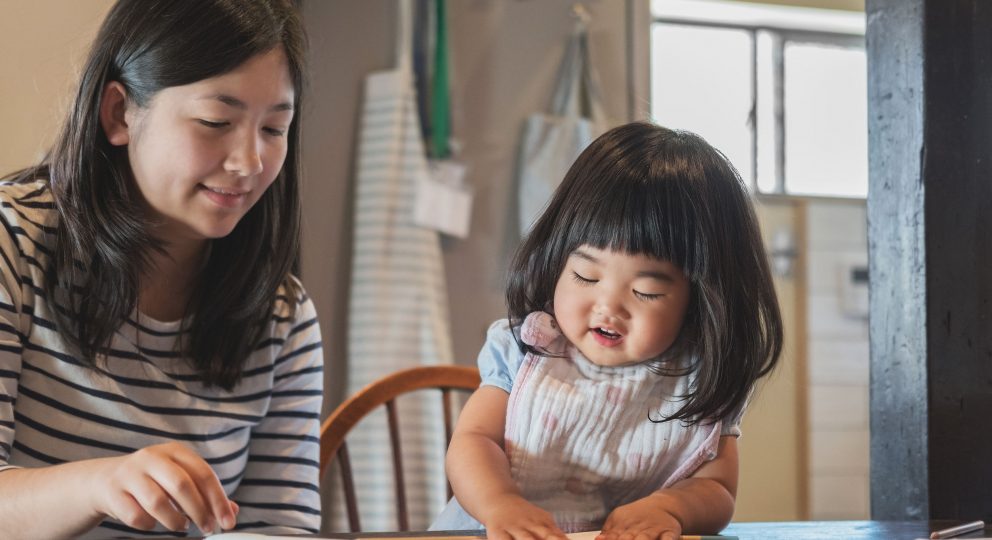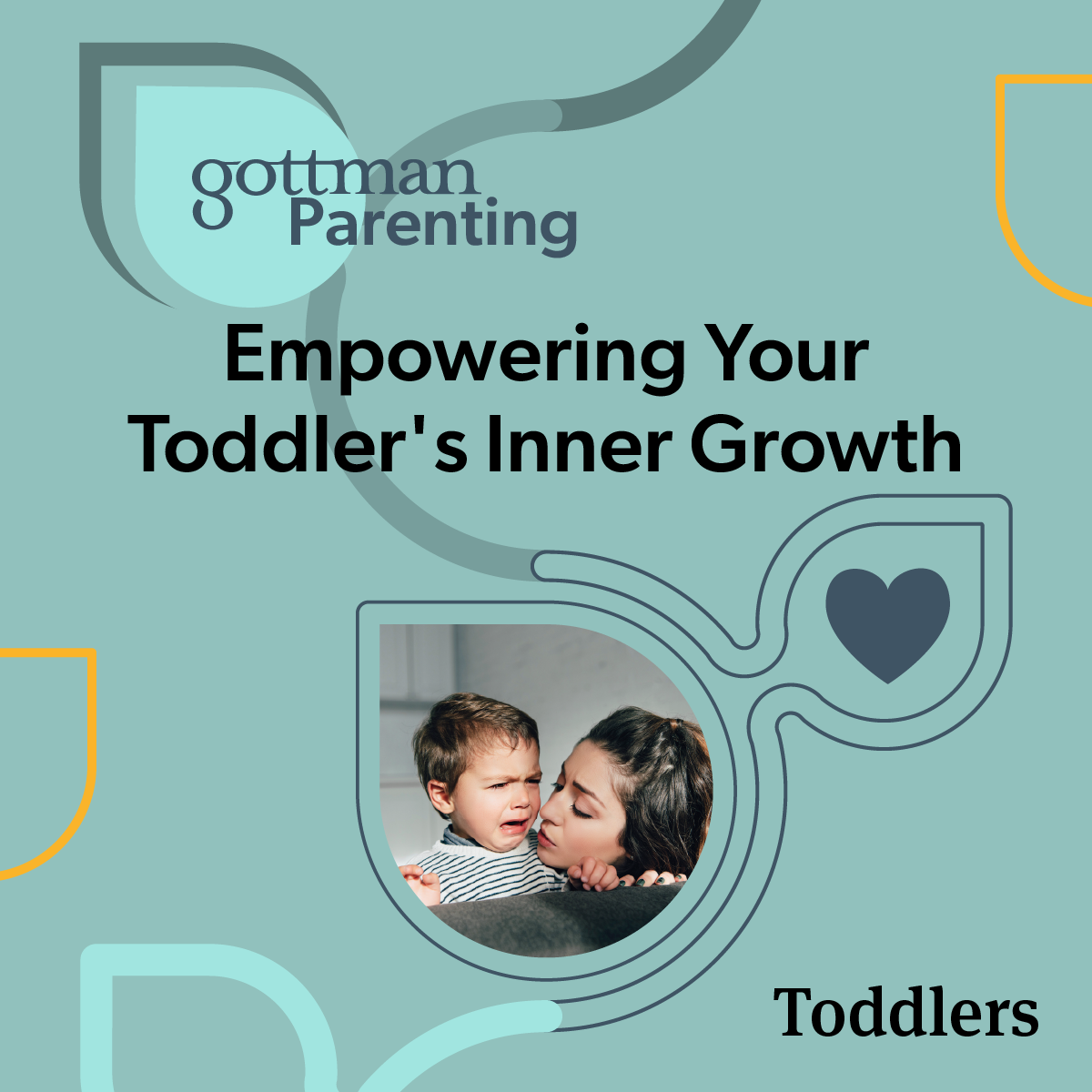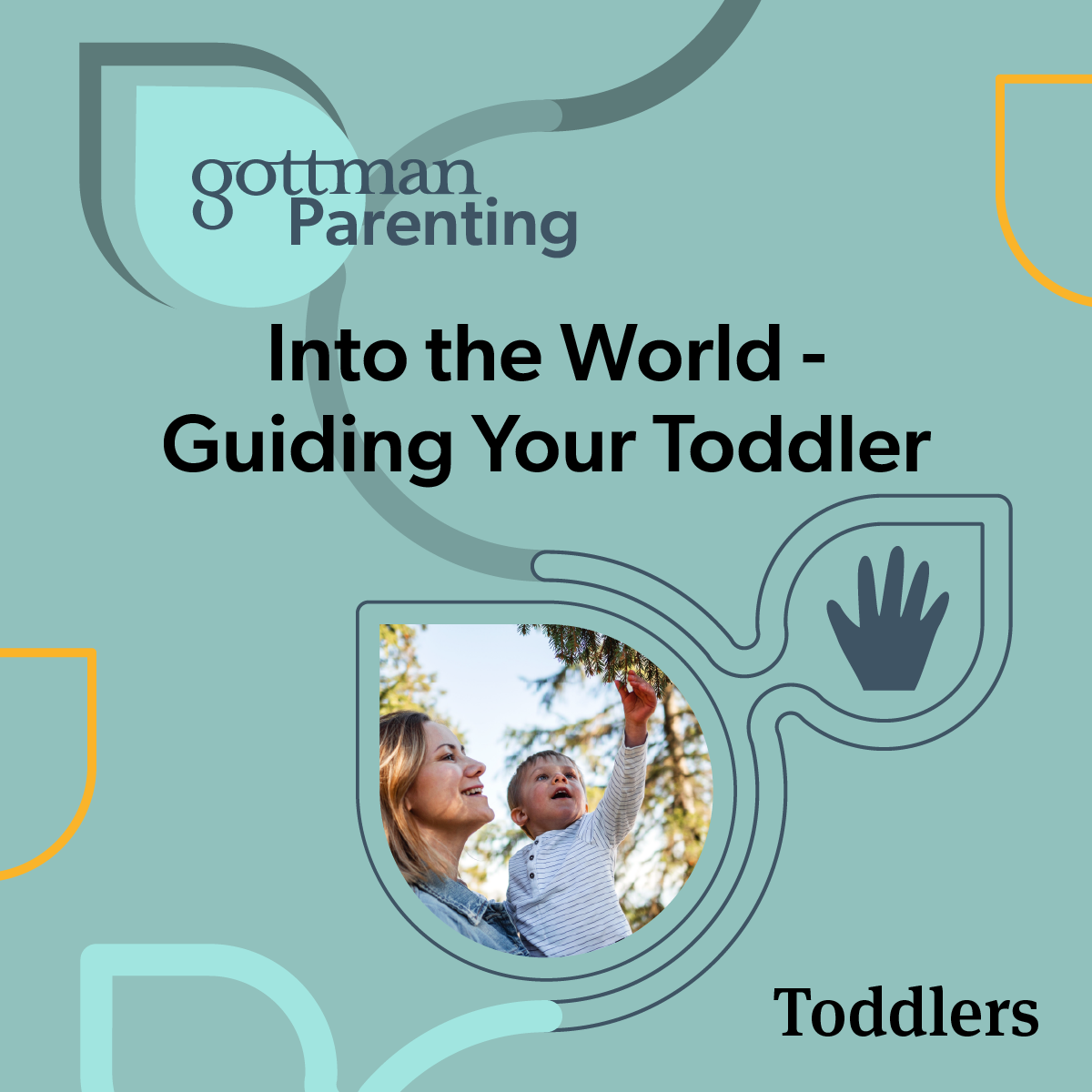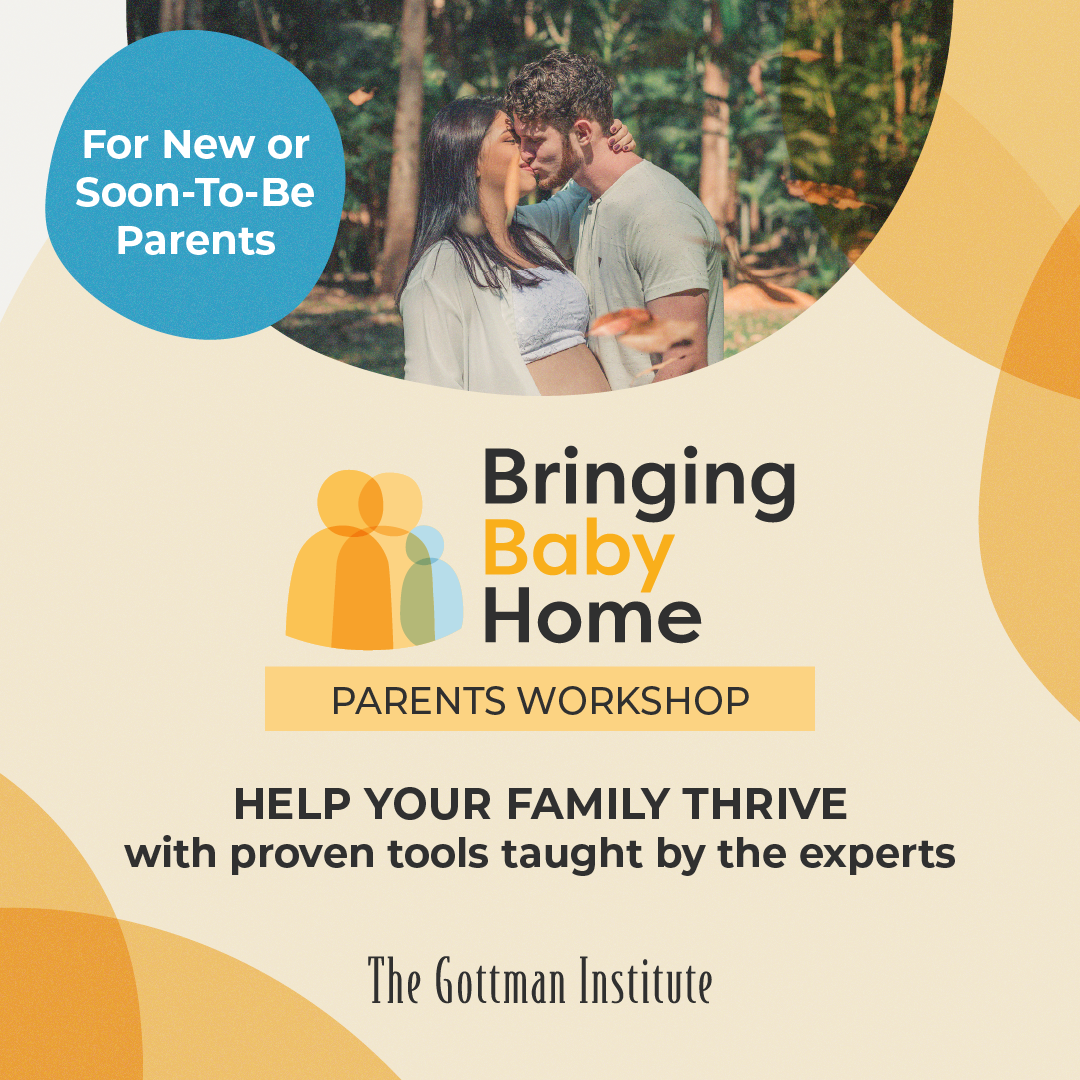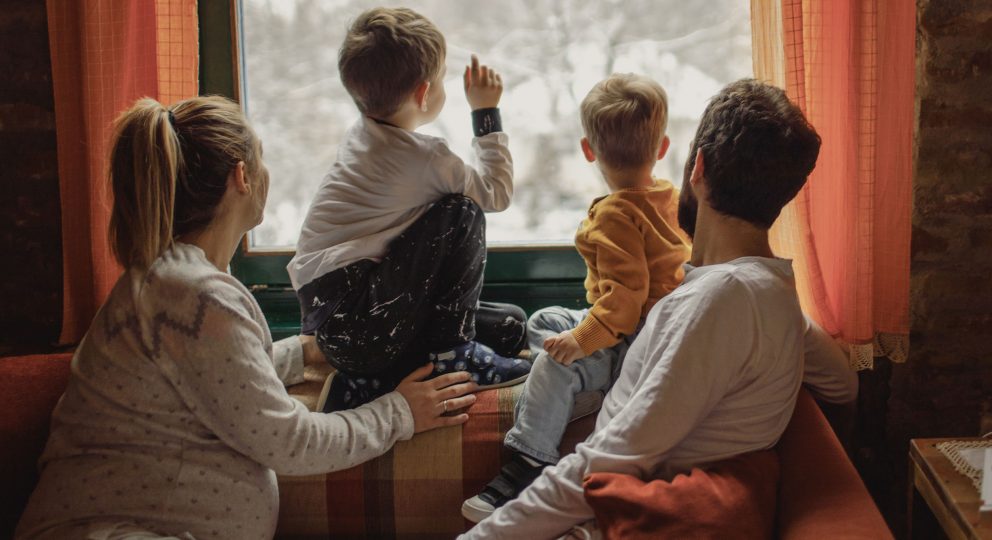What does your stress look like?
Our bodies and brains are wired to react to high stress situations as a safety net. If our brain perceives a threat, it signals the amygdala, the body’s “alarm” system, which tells our body to act without thinking. The amygdala responds to situations with the fight, flight, or freeze response. This is to protect us, but our stress receptors cannot distinguish between real dangers or false dangers. In everyday parenting, our stress response often gets triggered unnecessarily by events that are not actually life threatening. Our bodies are reacting to our kid spilling cereal all over the floor in the same way we would react if we were being chased by a bear.
Depending on your childhood experiences and memories, your stress response may be triggered more easily than another person. When our stress receptors are triggered, we have difficulty thinking clearly and being attentive to people around us. We are unable to be thoughtful in our responses, and have trouble staying focused, and our ability to solve problems is diminished.
Dr. Dan Siegel, a clinical psychologist who studies the brain, explains that during stressful parenting moments we may “lose control” or “flip our lid” and let our emotions control our reactions. When we “fly off the handle,” it happens so quickly and we aren’t thinking about how our children are perceiving us. Our reactions can be very scary to kids. Also, we are modeling that this is how grown ups react to stress. If we choose to be more mindful by pausing before responding, we can teach kids that they, too, can pause and choose to respond instead of react.
What does mindfulness mean in parenting?
Managing our own emotions and behaviors is the key to teaching kids how to manage theirs. It is the reason airlines tell us to put our oxygen masks on before you can put on your child’s mask. You need to be regulated before you can model regulation for your child. Unfortunately, when you’re stressed out, exhausted, and overwhelmed, you can’t be available for your child.
Mindful parenting does not mean being a “perfect parent” and is not something you can fail at. It is not easy and it takes practice, but like many aspects of parenting, some days are good and some are bad and you can always try again. You may forget to be mindful, but the second you realize you are distracted, it is an opportunity to make a different choice – the choice to be present.
Mindful parenting means that you bring your conscious attention to what’s happening, instead of getting hijacked by your emotions. Mindfulness is about letting go of guilt and shame about the past and focusing on right now. It’s about accepting whatever is going on, rather than trying to change it or ignore it.
Being a mindful parent means that you pay attention to what you’re feeling. It does not mean that you will not get angry or upset. Of course you will feel difficult emotions, but acting on them mindlessly is what compromises our parenting.
Benefits of mindful parenting
- You become more aware of your feelings and thoughts
- You become more aware and responsive of your child’s needs, thoughts, and feelings
- You become better at regulating your emotions
- You become less critical of yourself and your child
- You become better at standing back from situations and avoiding impulsive reactions
- Your relationship with your child will improve
How to practice mindful parenting
Think about a situation where you got upset or angry at your child – one where you reacted automatically because that is what most of us do when difficult thoughts, feelings, or judgments arise. In stressful situations when our emotions are easily triggered, it’s hard to be the best version of ourselves. You can expect that your child will find those triggers.
In order to make the choice to change your behaviors, you first have to become familiar with your “hot spots” and emotional triggers. Hot spots are certain times of our days when we are more vulnerable and less emotionally available. We may be feeling stressed, tired, overwhelmed or helpless, or we feel preoccupied with work or marriage.
Emotional triggers are feelings or judgments from your own childhood which may arise when your child does a specific action:
- Your child behaves in a way that clashes with your beliefs. Example: Your kid throwing food in a restaurant or grabbing all the toys in a store, which makes you feel embarrassed or shameful.
- Your child’s behavior may evoke a childhood memory and response. Example: Your child not being on the academic level you think they should be and you feeling like you failed as a parent because when you got a bad grade, your parents said it wasn’t good enough.
- Your child’s behavior may evoke a traumatic state or event. Example: If you broke your arm climbing a jungle gym as a kid and you are scared every time your kid goes to the playground.
- Your child’s behavior activates the lens of fears and desires. Example: if one of my kids wakes up the other kid during the night, no one is sleeping and everyone is crying and I fear I have no adult time and I’ve completely lost the old me now that I’m a parent.
In order to feel a sense of control over your emotions, you first have to be able to recognize and anticipate what types of situations are likely to trigger hot spots and emotional responses in you.
Kristin Race, Ph.D. and author of Mindful Parenting: Simple and Powerful Solutions for Raising Creative, Engaged, Happy Kids in Today’s Hectic World states that there are key factors to mindful parents.
Three key factors to mindful parenting
1. Notice your own feelings when you’re in conflict with your child
Think about your most recent argument or a frustrating situation with your child. What feelings are triggered? Are you angry, ashamed, embarrassed? Try to experience your emotion or trigger as a wave – coming and going. Try not to block or stop the emotion. Don’t push it away. Don’t judge or reject it. Don’t try to keep the emotion around. Don’t cling to it. Don’t make it bigger than it already is. You are not your emotion and you don’t have to act on the emotion. Just be there, fully mindful of it. Remind yourself that you don’t need to blame yourself or your child for what happened.
Next, try to see the conflict through your child’s eyes. If you can’t see goodness in your child during a tantrum or argument, think of a time when you felt connected with your child and responded with kindness. Try to remember that version of your child when you are triggered.
As you go throughout your day, make an effort to notice when you start to feel anxious or annoyed. That may be a signal that you are being triggered. Once you figure out your triggers, you can move to the next step.
2. Learn to pause before responding in anger
The most challenging and most important part of mindfulness is being able to find that calm space in the heat of the moment. We practice finding this space by focusing our attention on our body and breath because emotions show themselves as changes in body or breath. When we slow down and focus on our body and breath, there is a physiological change that decreases our reflexive responses and increases the abilities of our prefrontal cortex.
All of this leads to a calmer mind where you can find the space to sit with the emotion. When we are able to pause, we can experience the emotions as sensations in our body without fueling them by focusing on the trigger. In that space, we can remind ourselves to breathe and bring our thoughts back to the present moment, and then choose to respond how we want to and not react because we are out of control.
3. Listen carefully to a child’s viewpoint even when disagreeing with it
Your child is going to act like a child! This means they won’t always be able to manage their feelings. Kids are still learning how to regulate (actually, so are most adults) and have different priorities than you do. Their behavior will push your button at times, and that is okay.
The problem is when adults begin acting like kids, too. If, instead, we can stay mindful – meaning we notice our emotions and let them pass without acting on them – we model emotional regulation, and our children learn from watching us.
Learning to pause before responding takes practice and our ability to control our emotions changes depending on what’s going on each day. That is why self-care is so important. We can’t pour out all of ourselves every day and never take the time to fill back up. Many parents feel guilty for taking care of their own needs. That is not selfish – it’s necessary. Make yourself a priority, because the better you feel, the better you will be able to manage the frustrations that arise.
It is important to learn how to help yourself and how to meet your emotional needs. Examples of self-care can range from things like taking a time-out by hiding in the bathroom when you can’t handle your kids (which I did last night), taking a few minutes of deep breathing, or putting the television so you and your kid get a break to writing in a journal, taking a shower, going for a walk, or talking to your partner or a friend.
And, sometimes, we can’t catch ourselves in time and we do react in ways we regret. In those moments, we can apologize to our kids after we yell at them because we are still learning and parents make mistakes, too.
Written by: Jill Ceder
Want research-backed tips on parenting delivered straight to your inbox?
The Gottman Parenting newsletter is a comprehensive, inclusive resource for parents of children in all ages and stages. Join us as we tackle modern parenting challenges, explore the latest parenting research, and more.
